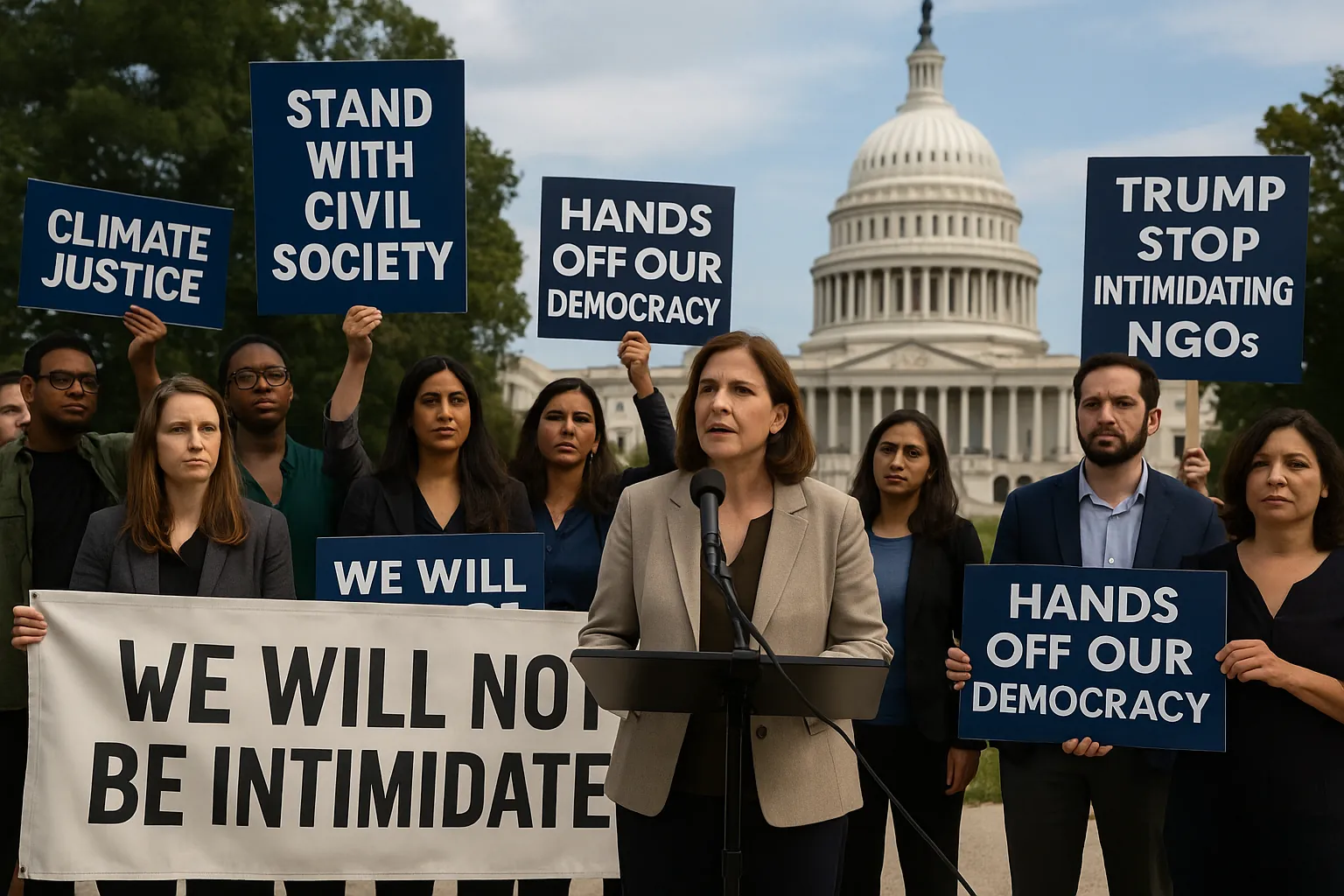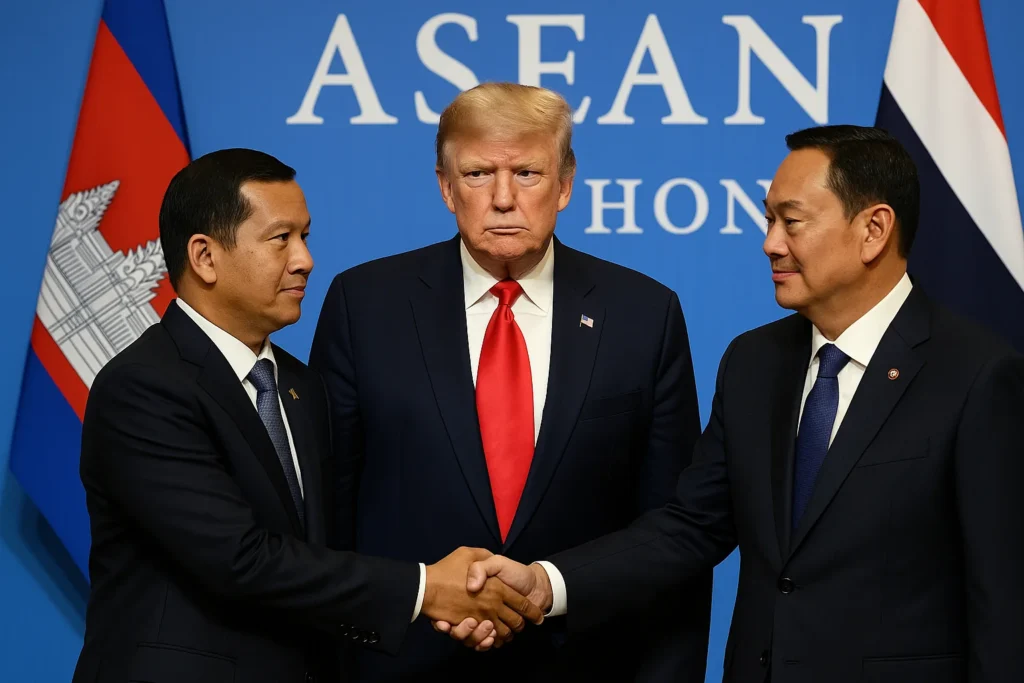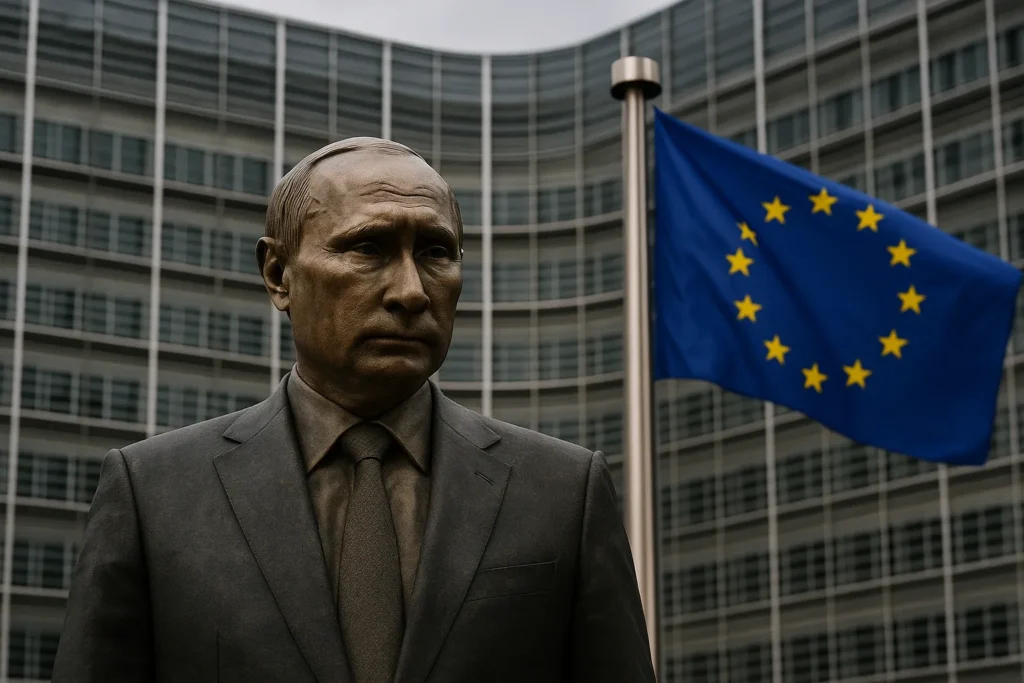When Donald Trump turned his rhetoric against philanthropist George Soros, branding him the shadowy puppet master of liberal causes, the reaction was not silence — it was solidarity. Across the United States, Trump Soros non-profits from climate coalitions to democracy watchdogs are closing ranks. Their message is simple but defiant: We will not be intimidated.
For years, Soros has served as the lightning rod of right-wing conspiracy culture — a billionaire philanthropist painted as the invisible hand behind every protest, reform movement, and progressive shift. But this time, Trump’s renewed assault comes with state power behind it. Non-profits that depend on open funding, transparency, and public trust now face audits, threats, and disinformation campaigns designed to portray civic engagement as subversion.
Context: how Soros became the perfect enemy
To understand the backlash, one must understand the mythology built around Soros. Since the 1990s, far-right populists have turned the Hungarian-born Holocaust survivor into a caricature — the globalist financier manipulating democracies. Trump weaponized this myth during his first term and has now revived it in his second, claiming Soros “controls” American NGOs that oppose his policies.
From Fox News panels to X (formerly Twitter), the narrative spread like wildfire. Soros-funded organizations — from the Open Society Foundations to local climate justice groups — became shorthand for “anti-American.” By vilifying Soros, Trump found a convenient way to discredit any form of dissent.
But Soros is not the story here — the story is the growing movement uniting against this narrative. Environmental NGOs, voting-rights groups, and even Palestinian solidarity organizations are forming a coalition of defense. They are locking arms not to protect one man, but to protect the right to exist without political intimidation.
Oppositional Argument: this is not anti-Trump — it’s pro-democracy
The Trump Soros non-profits campaign is not about partisanship. It’s about survival of civil society in an age where dissent is treated as treason. Trump’s messaging has evolved from simple attacks on the media to the criminalization of activism itself. He frames environmentalists as “economic saboteurs,” racial justice advocates as “foreign agents,” and election monitors as “Democrat spies.”
These tactics echo authoritarian strategies across the world — from Orbán’s Hungary to Erdoğan’s Turkey — where governments use financial scrutiny and moral panic to suffocate NGOs. The Trump administration’s rhetoric now mirrors those playbooks.
Democracy cannot function if citizens fear organizing. Civil groups do not hold power; they challenge it. When the president paints philanthropy as conspiracy, it isn’t patriotism — it’s projection.
Analytical Breakdown: the anatomy of intimidation
How does a democratic government intimidate non-profits without openly banning them? Subtly. Through IRS reviews, selective funding denials, and public smear campaigns that brand transparency as guilt.
In September 2025, the Trump-aligned Freedom Oversight Committee demanded a federal investigation into “foreign-funded civic operations.” Within days, right-wing media circulated leaked tax documents from several Soros-backed initiatives, claiming evidence of “political interference.” None was found — but the damage was done.
According to the Democracy Defense Index, over 300 NGOs have reported new forms of pressure since Trump’s re-election — ranging from sudden legal inquiries to online harassment of staff. These are not random incidents; they form a pattern.
Meanwhile, the administration’s allies in Congress amplify the narrative that philanthropy equals manipulation. Republican senators openly suggest revoking tax exemptions for “activist” charities. It’s a chilling reminder that soft authoritarianism begins not with arrests, but with reputational ruin.
The Soros effect: money as a moral weapon
Trump’s rhetoric targets Soros because his name evokes both wealth and influence. In populist storytelling, that combination is deadly — it allows leaders to redirect public anger from corporate elites toward an individual symbol of liberalism. It is classic scapegoating, dressed in anti-globalist language.
Yet Soros’s foundation represents something Trump fears most: decentralized power. A network of NGOs that cannot be easily controlled, bought, or silenced.
Human Perspective: the people behind the causes
Behind every acronymed NGO are real people — lawyers defending protestors, teachers promoting civic literacy, volunteers planting trees in burned-out Californian forests. Now, they’re receiving threats, having their communications monitored, and being labeled “agents of Soros.”
One environmental organizer in Michigan, who requested anonymity, described being visited by federal agents “asking about foreign influence.” Her group’s only “foreign” link? A $15,000 climate grant from a European foundation.
In Washington, Palestinian solidarity organizations report an increase in online attacks following Trump’s claim that “Soros money funds anti-Israel propaganda.” Many of these groups are led by Jewish Americans themselves — a detail lost on the trolls and pundits who conflate criticism of government policy with hatred.
For the first time, organizations across ideological lines — from climate defenders to democracy educators — are forming a united defense council. They are drafting a joint statement affirming that philanthropy is not treason. “We stand together,” reads the draft, “because fear is contagious — but so is courage.”
Counterarguments: the right’s defense of ‘accountability’
Trump allies argue that these measures are about transparency, not repression. They claim non-profits have become “political actors” abusing tax exemptions to campaign against the government. There’s truth in the idea that accountability matters — but accountability cuts both ways.
If transparency is the goal, why are investigations selective? Why target only those groups critical of the administration? Why not apply the same scrutiny to right-wing organizations financed by billionaires like Peter Thiel or the Koch network?
The selective nature of Trump’s oversight reveals its purpose: control, not clarity. To make NGOs spend resources defending themselves instead of doing their work. To make donors think twice before funding dissent.
Conclusion: intimidation as ideology
What Trump and his movement have unleashed is more than administrative harassment — it’s ideological warfare against the Enlightenment notion of civil participation. The Trump Soros non-profits alliance shows that the antidote to fear is unity.
Democracy survives not through politicians but through the institutions that outlast them. When those institutions are attacked, society must choose whether to retreat or resist.
These organizations are not asking for immunity; they are demanding space to exist. Their defiance is the essence of freedom: the belief that truth and justice cannot be audited into silence.
History shows that every autocrat fears the same thing — not an enemy abroad, but citizens who refuse to bow. The United States now faces that test again. Whether civil society endures will determine whether democracy still means anything more than a slogan.
External Links
71 views






